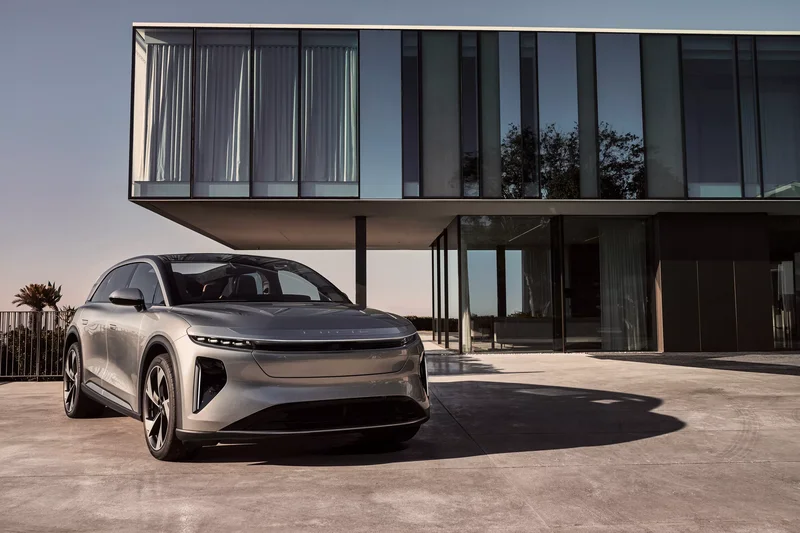360° Financial Trend Detection
360° Financial Trend Detection
The Lucid Gravity, the all-electric SUV from Lucid Motors, has snagged HotCars' "Buzz Awards: Lucid Gravity Named Best Luxury Vehicle For 2026 - HotCars" Buzz Award. Awards are great for marketing, but do they translate to actual value? Let's dig into the data.
Lucid is touting a 450-mile range, dual-motor all-wheel drive, and access to the Tesla Supercharger network. The range is impressive, placing it near the top of the EV SUV market. The Supercharger access is a smart move, mitigating one of the biggest consumer anxieties about EVs: charging availability. But let's not get ahead of ourselves. Range estimates are just that – estimates. Real-world conditions (weather, driving style, payload) can significantly impact those numbers. Has HotCars factored this into their assessment? Unclear.
The interior boasts a minimalist design, sustainable materials, and a massive 34-inch floating display. Add in the "zero-gravity" seating, and you've got a recipe for a comfortable ride. But luxury isn't just about comfort; it's about performance. The Gravity claims up to 828 horsepower and a 0-60 mph time of 3.3 seconds. Those are sports car numbers, in an SUV. The 123-kWh battery is substantial, though the actual usable capacity will be slightly lower.
The ability to tow 6000 pounds and seat seven passengers adds utility to the luxury equation. This is where the Gravity differentiates itself from some of its competitors, like the Tesla Model X or the upcoming Cadillac Optiq and Audi A6 e-tron. But here's where I get a bit skeptical. Towing significantly reduces range in EVs. A 6000-pound trailer will likely cut that 450-mile estimate in half, or even more. Has HotCars tested the Gravity’s towing capabilities under real-world conditions? Probably not.

Lucid is emphasizing the infotainment system's "iPad-like smoothness," voice and gesture controls, and over-the-air updates. In today's market, a glitchy infotainment system can sink a car, no matter how good the engine is. The promise of over-the-air updates is also crucial, allowing Lucid to address bugs and add features without requiring a trip to the dealership. This is critical for long-term customer satisfaction. (Though, historically, software updates are rarely as seamless as promised).
I've looked at hundreds of these award announcements, and the emphasis on software is a telling sign of the industry's shifting priorities. It's no longer just about horsepower and handling; it's about the user experience inside the car. It's about how well the car integrates with the driver's digital life. But how much weight did HotCars give this aspect? Was it a major factor in their decision, or just a bullet point on a press release?
The Gravity scales the design and performance of the Lucid Air sedan into an SUV. This is a logical move, leveraging the brand recognition and engineering expertise already established. However, scaling up a sedan to an SUV presents its own challenges. Weight distribution, aerodynamics, and handling dynamics are all different. The Gravity's expansive Glass Canopy roof, while visually appealing, could also impact the vehicle's structural rigidity and thermal efficiency. These are the details that can make or break a luxury vehicle, and the kinds of things that deserve rigorous testing.
Ultimately, the "Best Luxury Vehicle" award is a marketing tool. It's designed to generate buzz and drive sales. While the Lucid Gravity certainly has impressive specs and features, it's crucial to take these accolades with a grain of salt. Real-world testing and long-term reliability are the true measures of a luxury vehicle's worth. The HotCars award is a good start, but it's just one data point in a much larger equation.
A flashy headline doesn't equal a flawless car. The Gravity shows promise, but real-world performance will be the ultimate judge.